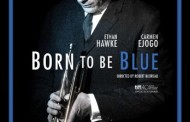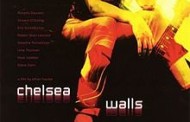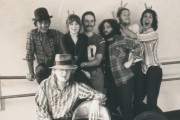 Bridge of Spies will likely not be counted among the greatest films of Steven Spielberg like Jaws, E.T. the Extra-Terrestrial, Raiders of the Lost Ark, Schlinder’s List, and Saving Private Ryan (just to name a few masterpieces), but it is an extraordinary Cold War drama that will certainly elbow its way up to the upper echelon on Spielberg’s filmography. In some ways its one of Spielberg’s best-acted films, and for a filmmaker who has built an already impressive oeuvre exploring different facets of mid twentieth century war and politics, Bridge of Spies is a welcome drama that combines Hitchcockian tension, Frank Capra patriotism, and Spielberg’s own masterful sensibilities.
Bridge of Spies will likely not be counted among the greatest films of Steven Spielberg like Jaws, E.T. the Extra-Terrestrial, Raiders of the Lost Ark, Schlinder’s List, and Saving Private Ryan (just to name a few masterpieces), but it is an extraordinary Cold War drama that will certainly elbow its way up to the upper echelon on Spielberg’s filmography. In some ways its one of Spielberg’s best-acted films, and for a filmmaker who has built an already impressive oeuvre exploring different facets of mid twentieth century war and politics, Bridge of Spies is a welcome drama that combines Hitchcockian tension, Frank Capra patriotism, and Spielberg’s own masterful sensibilities.
The opening of the film — which is based on a true story — sees artist Rudolf Abel (an extraordinary Mark Rylance, a shoe-in for supporting actor award nominations) arrested by the FBI in 1957 for espionage. Though Abel doesn’t hide the fact that he is a Soviet agent, the calm, quiet-spoken man reveals nothing of his mission to American agents. The U.S. government asks Brooklyn insurance lawyer James B. Donovan (Tom Hanks) — who served the prosecution during the Nuremberg trials — to defend Abel in a trial, though Donovan is well aware that Abel will undoubtedly be found guilty. Nonetheless, Donovan begins to develop compassion for Abel, who was merely doing the bidding of his country. The main plot of Bridge of Spies reveals the fickleness of the American people. Donovan is reviled for defending Abel even though he is doing so to prove that America’s ideals trump political differences. He ends up proven right when Abel turns out to be far more valuable alive than dead. However, that just means Donovan is drafted into a far more dangerous situation in East Germany.
Rarely do talents like Spielberg and Hanks combine to make a bad movie (well, let’s forget about The Terminal for a moment). However, both are working from an excellent script. Originally written by screenwriter Matt Charman, the dialogue is often clever, witty and surprisingly funny at times, which could probably be credited to Joel and Ethan Coen, who revised the original script. This is a story that is the perfect material for a film, and the talent involved make the dialogue-heavy script flow magnificently.
The only aspect audiences might find disappointing with Bridge of Spies is the lack of action. The physical threats in the film are mainly implied, which develops tension effectively. However, this is a movie that is heard as much as it is seen — the real conflict is in the dialogue, especially when Donovan realizes that the government agents he is dealing with always seem to know everything about him. These implied threats include a scene in which American schoolchildren learn about ducking under their desks during a potential nuclear strike — which seem to appear in every film about the Cold War. Come on Spielberg, you can do it better than that!
Also, it’s worth noting that regular Sam Mendes composer Thomas Newman does an admirable job of echoing John Williams‘ signature sound (this is the first Spielberg film since The Color Purple to not feature a Williams score). In fact, the first half of the film has very little score, which is unsettling for a Spielberg film. But that works to the film’s advantage.















